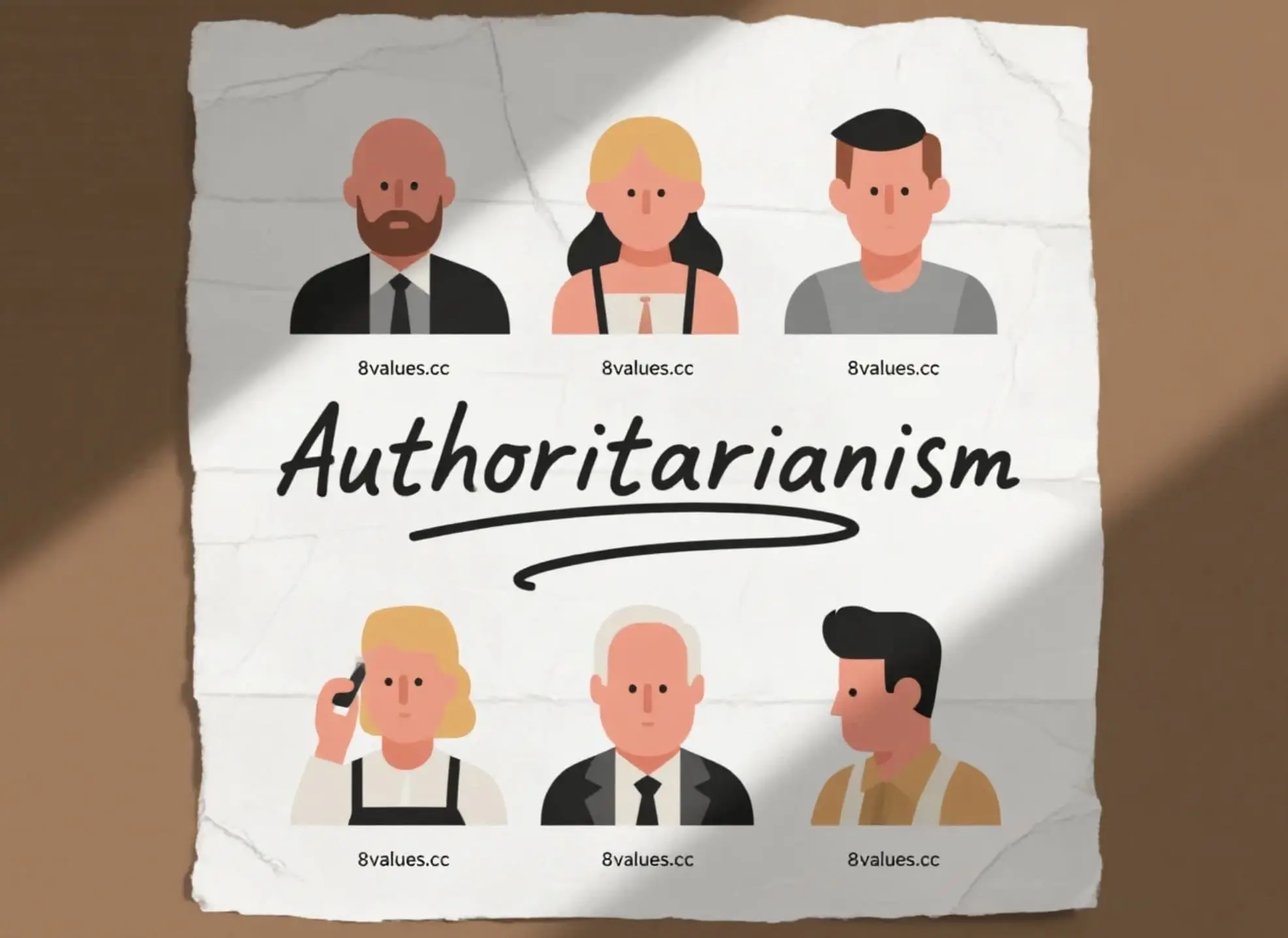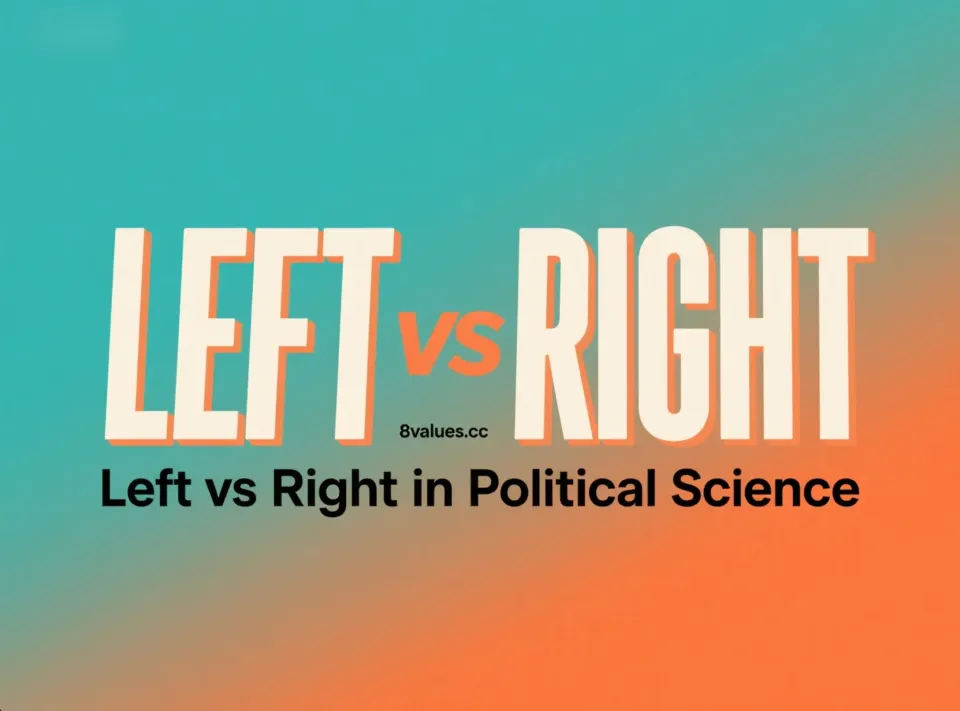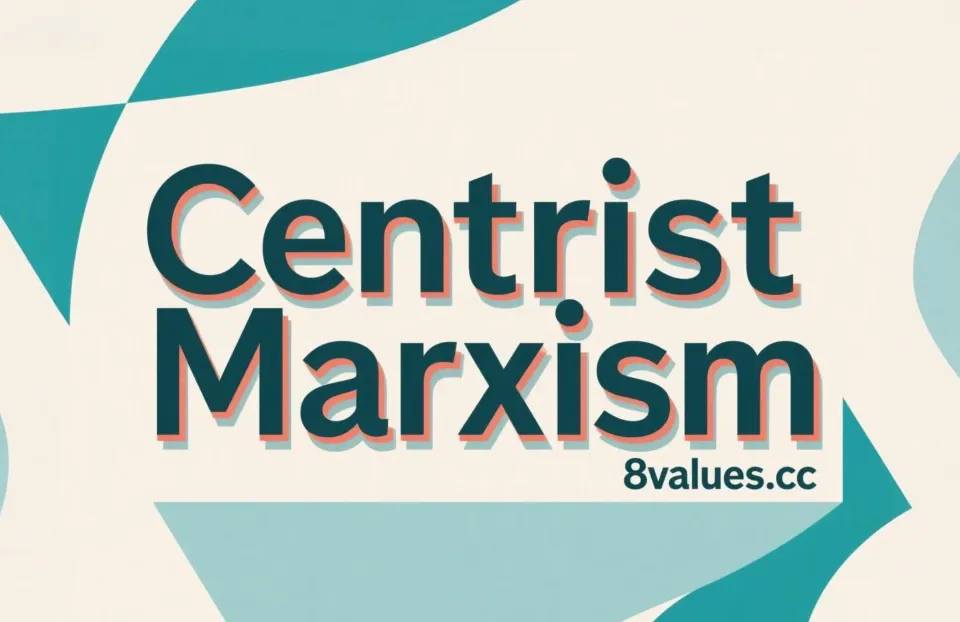Authoritarianism | 8values Interpretation of ideological ideology of political tests
This article comprehensively analyzes the concepts of authoritarianism, core characteristics, historical types and contemporary practices, and helps to understand the concentration of political power, ideological restrictions and socio-economic impacts. The article combines the results of 8values political tests and related ideological analysis to provide users with authoritative and popular political science interpretation.
Authoritarianism, also known as authoritarianism, authoritarian regime or relatively authoritarianism, is an important political form between democratic politics and totalitarianism in political science. In the 8 values test, if your results show a tendency to authoritarianism, you may prefer a stable, orderly and clear authoritative system, and have some resistance to political diversity and free competition.
The core of the authoritarian regime is that power is highly concentrated and political participation is restricted, but it is not a comprehensive social mobilization, and its economic and social policies are relatively flexible. This article will combine historical and realistic cases to analyze in detail the various dimensions of authoritarianism and the interpretation of relevant 8 values test results.
The definition and core characteristics of authoritarianism
Authoritarianism is a political system that concentrates power in the hands of a single government agency, leader or a few elites, and the exercise of power is usually not subject to law. Its main features include:
- Power concentration : A single leader or small group controls state power and can consolidate power through legal or other means.
- Limited political diversity : political participation and competition are limited, and the elements of democratic institutions are missing. See the 8values test for the "Political Authority Preference" dimension.
- Suppress objections : The government has limited tolerance for opposition voices and maintains order through military, police or administrative means.
- Lack of accountability : Election freedom is limited and citizens have difficulty replacing leaders.
- Lower ideological control : Compared with totalitarianism, no need to force cults of personality or single ideology.
- Economic and social sphere diversification : allow market economy, private enterprises and non-political media to exist.
- The rules for political leadership change are special : the transfer of power may be completed through inheritance, veteran designation or violent means.
- The economic development goals are clear : emphasizing market economy, rule of law and transparency.
Through the "authority-freedom" dimension in the 8values political test, you can more intuitively understand individuals' tendencies in political authority acceptance.
The difference between authoritarianism and other political systems
The difference from democratic politics
Democratic politics emphasizes open competition, checks and balances of power and civic participation, and authoritarianism has limitations or lacks in these aspects. Authoritarian states may have elections, but elections are strictly controlled.
The difference from totalitarianism
- Scope of control : Totalitarianism seeks to fully control social and private life, while authoritarianism focuses on the political field.
- Ideology : Totalitarian regimes usually enforce unified ideology and require individual worship, while authoritarian regimes allow for pluralism of thought.
- Social mobilization : Totalitarianism is keen on mass mobilization, while authoritarianism emphasizes political indifference and social order.
- Power structure : Totalitarianism may monopolize power by a single dictator, while authoritarianism may be controlled by a political party or small group.
The difference from authoritative personality
Authoritative personality belongs to the category of psychology and manifests itself as blind obedience to authority, while authoritarianism is a form of political system. 8values tests can help assess whether an individual has an authoritative personality tendency.
Historical background and types of authoritarianism
Authoritarianism was first proposed by Voglin in the 1930s and further analyzed by Juan Linz. During the Cold War, authoritarian regimes flourished in East Asia and Southeast Asia. Typical types include:
- Monarchy : royal family or monarchy rule, such as Saudi Arabia.
- Military regime : Take power through military coups, such as the Pinochet regime in Chile.
- Individual dictatorship : non-military people have been in power for a long time, such as in part of the historical period of Malawi.
- Theocratic rule : Religious leaders hold state power, such as during the Iranian Khomeini period.
- Party authoritarian and dictatorial : single party dominates, such as Singapore, etc.
- Bureaucratic authoritarian dictatorship : bureaucratic institutions control states, such as during the Sarasha period in Portugal.
- Thieves-type regime : the main purpose is to acquire personal wealth, such as the Marcos period in the Philippines.
You can observe your preferences in power acceptance and control through the "decentralization-centralization" dimension in the 8 values test.
The significance of economic and political development of authoritarianism
Authoritarian regimes are considered to contribute to social stability and economic growth. Many authoritarian regimes have achieved results in market economy, rule of law and transparency, such as the Park Chung-hee regime in South Korea and Singapore. In terms of politics, authoritarianism provides an elite training and an institutionalized environment, which helps the construction of the party system and the gradual development of democratic elements.
Related 8 values Test tools : Political spectral coordinate analysis can help you understand the position of authoritarianism in the overall political spectrum.
Limitations and challenges of authoritarianism
- Weak legitimacy : Relying on forced maintenance of order is easily questioned by the people and the international community.
- Development paradox : Economic and educational development may cause people to demand more rights.
- Concentration of decision-making : Concentrating power may reduce policy adaptability.
- Information closure : Information constraints can lead to policy errors or catastrophic consequences.
- Leader’s risk : Institutional stability depends on leadership quality.
- Political conflict : The way of suppressing conflict may intensify social conflicts.
You can refer to the 52 ideological results in the 8 values results page to view the specific manifestations of different authoritarian subtypes.
Contemporary Discussion and Related Concepts
- Competitive authoritarianism : The form of election exists, but democracy is weakened, and some American political scholars believe this tendency was shown during the Trump era.
- Securityism : Emphasizing the protection of the core of society can sacrifice democracy and civil liberties.
- Art and Censorship : Authoritarian regimes may limit culture and artistic creation.
- Restricted women's rights : The government interferes in individual rights on the grounds of controlling social order.
- Authoritarian political development : the framework of "fragmented authoritarianism" or "negotiable authoritarianism" emphasizes the integrity and restraint of power.
Related article reference: 8values blog and 8values test results interpretation can provide an in-depth understanding of these concepts.
The fragility and summary of authoritarianism
Authoritarian systems are inherently fragile: legitimacy depends on coercion, over-centralization of decision-making, and inadequate adaptation to the people and the elite. This system is prone to legitimacy crises and political conflicts when dealing with social change.
In short, authoritarianism is a complex and multidimensional political form. Through the 8 values test, you can evaluate your tendency to authoritative acceptance, political participation, and social order preferences, and combine this article to understand its institutional advantages and limitations.
Related recommendations :






